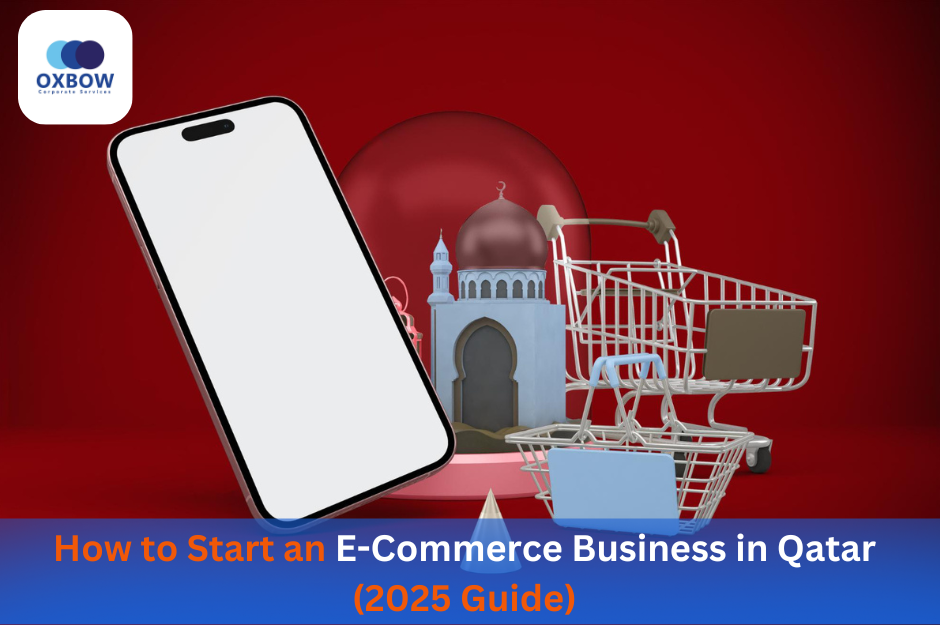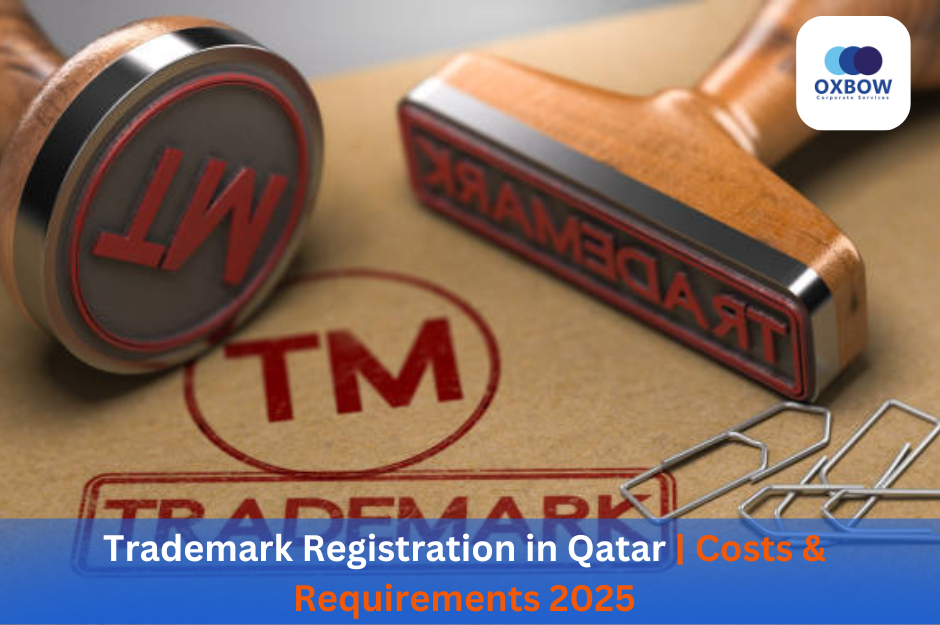Are you looking to tap into the booming e-commerce market in Qatar? The Middle East is witnessing a rapid boom in the e-commerce industry, and Qatar is no exception. With high internet penetration, a tech-savvy population, and government support for digital transformation under Qatar National Vision 2030, entrepreneurs are increasingly exploring online business opportunities in the country. If you’re wondering how to start an e-commerce business in Qatar, this comprehensive guide will walk you through every step — from legal requirements and licensing to choosing platforms, payment gateways, and marketing strategies. Our team of experts is here to guide you through the process and help you set up a successful online store in one of the fastest-growing markets in the Middle East. Qatar is known for its high purchasing power, digital-savvy population, and strategic location, making it an ideal country to launch your E-Commerce venture.
- Why Start an E-Commerce Business in Qatar?
- Why do you need an e-commerce license in Qatar?
- Step 1: Research the E-Commerce Market in Qatar
- Step 2: Decide Your E-Commerce Business Model
- Step 3: Register Your E-Commerce Business in Qatar
- Step 4: Open a Corporate Bank Account in Qatar
- Step 5: Choose the Right E-Commerce Platform
- Step 6: Set Up a Payment Gateway
- Step 7: Build Logistics & Delivery Systems
- Required Documents for E-Commerce Business in Qatar
- Challenges of Starting an E-Commerce Business in Qatar
- Benefits of E-Commerce Business in Qatar
- Cost of Starting an E-Commerce Business in Qatar
- How to Get an E-Commerce License in Qatar With Us
- Why Choose Us?
- Connect With Oxbow Corporate Services
- FAQs: Starting an E-Commerce Business in Qatar
- Do I need a license to start an e-commerce business in Qatar?
- How much does it cost to open an e-commerce business in Qatar?
- Can foreigners open an e-commerce company in Qatar?
- Which are the best payment gateways for e-commerce in Qatar?
- What are the best e-commerce niches in Qatar?
- How long does it take to get an e-commerce license in Qatar?
- Do I need a physical office to run an online business in Qatar?
- Is dropshipping allowed in Qatar?
- Can I sell in Qatar through international platforms like Amazon?
- What is the future of e-commerce in Qatar?
Why Start an E-Commerce Business in Qatar?
Before diving into the process, it’s important to understand why Qatar is an attractive hub for e-commerce:
- High Internet Penetration – Over 99% of the population uses the internet.
- Young, Tech-Savvy Consumers – A large portion of the population prefers online shopping.
- Government Support – Initiatives like the Qatar Digital Government Strategy encourage digital entrepreneurship.
- Strong Economy – Qatar is among the wealthiest nations per capita, with high purchasing power.
- Growing Logistics & Delivery Networks – With improved infrastructure, online businesses can easily fulfill customer needs.
Why do you need an e-commerce license in Qatar?
Before diving into the process of obtaining an e-commerce license in Qatar, it is important to understand why it is necessary. An e-commerce license is required to legally operate an online business in Qatar. Without it, you risk facing fines or even having your business shut down. Additionally, having an e-commerce license gives your customers confidence in the legitimacy of your business, ultimately leading to increased trust and sales.
Step 1: Research the E-Commerce Market in Qatar
Before setting up your business, conduct market research to identify demand, target audience, and competitors.
Key niches in Qatar’s e-commerce industry include:
- Fashion & Apparel
- Electronics & Gadgets
- Groceries & Food Delivery
- Health & Beauty Products
- Sports & Fitness Equipment
- Online Services & Digital Products
👉 Tip: Use platforms like Qatar eGovernment Portal, Statista, or local market surveys to understand customer behavior.
Step 2: Decide Your E-Commerce Business Model
There are different types of e-commerce business models to consider:
- B2C (Business to Consumer): Selling directly to end-users (e.g., fashion stores, electronics shops).
- B2B (Business to Business): Providing products/services to other businesses.
- C2C (Consumer to Consumer): Platforms like OLX or marketplaces where individuals sell to individuals.
- D2C (Direct to Consumer): Selling through your own website without intermediaries.
- Dropshipping Model: Selling products online without holding inventory — suppliers fulfill orders directly.
Choose the model that suits your budget, scalability, and goals.
Step 3: Register Your E-Commerce Business in Qatar
To operate legally, you need to register your company and obtain necessary licenses.
Business Registration Process:
- Decide the Business Structure
- Limited Liability Company (LLC) – Most common for e-commerce.
- Single Person Company (SPC) – Ideal for solo entrepreneurs.
- Branch Office – For international companies expanding into Qatar.
- Register with the Ministry of Commerce and Industry (MOCI):
- Apply for Commercial Registration (CR).
- Reserve a trade name.
- Draft Articles of Association.
- Obtain Trade License:
- Required to carry out business activities.
- Apply for E-Commerce License (MOCI):
- The E-Commerce License in Qatar is mandatory for selling goods/services online.
- This ensures consumer protection and builds trust.
👉 Without proper registration, your online store may face penalties or closure.
Step 4: Open a Corporate Bank Account in Qatar
After licensing, open a business bank account with a Qatari bank. Some popular options include:
- Qatar National Bank (QNB)
- Doha Bank
- Commercial Bank of Qatar
- Masraf Al Rayan
This account is essential for handling payments, transactions, and financial compliance.
Step 5: Choose the Right E-Commerce Platform
Your website or platform is the backbone of your online business. You can either build your own e-commerce website or list products on marketplaces in Qatar.
Popular E-Commerce Platforms:
- Shopify – User-friendly and scalable.
- WooCommerce (WordPress plugin) – Great for startups.
- Magento – Powerful, enterprise-level.
- Wix eCommerce – Simple and affordable.
Marketplaces in Qatar:
- Carrefour Qatar Online
- Snoonu
- Wishbox
- Amazon.sa (serving Qatar customers)
👉 For long-term branding, creating your own website is the best option.
Step 6: Set Up a Payment Gateway
In Qatar, customers prefer cashless transactions, so integrating a secure payment gateway is crucial.
Popular Payment Gateways in Qatar:
- QPay
- Qatar National Bank Payment Gateway
- CCAvenue Middle East
- PayTabs
- Fatora.io
Make sure your gateway supports credit/debit cards, Apple Pay, and cash-on-delivery to increase sales.
Step 7: Build Logistics & Delivery Systems
Fast and reliable delivery is one of the key success factors in e-commerce.
Options include:
- Third-Party Logistics Companies (3PLs): Aramex, DHL, FedEx, Q-Post.
- Local Delivery Services: Snoonu, Talabat Mart, Jeeb.
- In-House Delivery: If you want full control, build your own fleet.
👉 Pro Tip: Offer same-day or next-day delivery to stand out in the competitive market.
Required Documents for E-Commerce Business in Qatar
Having the appropriate paperwork not only ensures that your business is operating within the legal boundaries but also helps in building trust with your customers and suppliers. In addition, having all the necessary documents in place can expedite the process of setting up your e-commerce business and avoid any unnecessary delays or fines.
- Commercial Registration: One of the essential documents you will need is a commercial registration certificate, also known as a trade license. This certificate is issued by the Ministry of Trade and Commerce in Qatar and is required for all businesses operating in the country.
- Company Memorandum and Articles of Association: These documents outline the company’s structure, objectives, and governing rules. They are essential for registering your e-commerce business and establishing its legal framework.
- Tax Registration Certificate: In Qatar, businesses are required to register for tax purposes. You will need to obtain a tax registration certificate from the General Tax Authority to comply with the country’s tax laws.
- Import and Export License: If your e-commerce business involves importing or exporting goods, you will need to obtain the necessary licenses from the relevant authorities in Qatar. This will ensure that your business is compliant with customs regulations.
- Commercial Lease Agreement: If you are planning to set up a physical office or warehouse for your e-commerce business in Qatar, you will need a commercial lease agreement. This document is required for obtaining a trade license and conducting business activities.
- Bank Account Opening Documents: To operate smoothly, you will need to open a business bank account in Qatar. The bank will require certain documents such as the commercial registration certificate, company memorandum, and articles of association.
- Employee Contracts and Labor Documents: If you plan on hiring employees for your e-commerce business, you will need to have employment contracts in place. Additionally, you will need to comply with Qatar’s labor laws and regulations.
- E-Commerce Platform License: If you are using a specific e-commerce platform to operate your online store, you may need to obtain a license or agreement from the platform provider.
Challenges of Starting an E-Commerce Business in Qatar
- High Competition – Many international players are active.
- Cultural Preferences – Some customers still prefer in-store shopping.
- Logistics Costs – Delivery can be expensive.
- Regulatory Procedures – Licensing takes time and paperwork.
With the right strategy, however, these challenges can be turned into opportunities.
Benefits of E-Commerce Business in Qatar
When it comes to e-commerce in Qatar, the benefits are plentiful. Let’s explore some of the key advantages:
- Global Reach: One of the most significant benefits of e-commerce business in Qatar is the ability to reach a global audience. With an online store, businesses in Qatar can tap into international markets without the need for physical presence in those countries. This opens up a world of opportunities for growth and expansion.
- 24/7 Availability: Unlike traditional brick-and-mortar stores, e-commerce businesses in Qatar are open 24/7. This means customers can shop at any time of the day or night, making it convenient for both the business and the consumer. This round-the-clock availability can lead to increased sales and revenue.
- Cost-Effective: Setting up an e-commerce business in Qatar is generally more cost-effective than establishing a physical store. There are lower overhead costs, such as rent and utilities, and businesses can reach a wider audience with minimal investment in marketing and advertising.
- Convenience: E-commerce offers unparalleled convenience for both businesses and customers. Customers can shop from the comfort of their homes, while businesses can manage their operations remotely. This convenience factor is a significant driver of the e-commerce boom in Qatar.
- Data-driven Insights: One of the lesser-known benefits of e-commerce business in Qatar is the access to valuable data and insights. With analytics tools, businesses can track customer behavior, preferences, and buying patterns. This data can be used to personalize marketing efforts and improve the overall shopping experience.
- Scalability: E-commerce businesses in Qatar have the advantage of scalability. As the business grows, it is easier to expand and adapt to changing market conditions. Whether it’s adding new products or entering new markets, e-commerce provides the flexibility to scale up operations seamlessly.
- Customer Engagement: E-commerce allows for enhanced customer engagement through various channels, such as social media, email marketing, and live chat. Businesses can interact with customers in real-time, address their queries, and build lasting relationships that drive loyalty and repeat business.
Cost of Starting an E-Commerce Business in Qatar
The cost varies depending on scale, but here’s a rough estimate:
| Expense | Estimated Cost (QAR) |
|---|---|
| Business Registration & License | 10,000 – 15,000 |
| E-Commerce License | 1,000 – 3,000 |
| Website Development | 5,000 – 20,000 |
| Payment Gateway Setup | 2,000 – 5,000 |
| Marketing Budget | 5,000 – 30,000 (monthly) |
| Logistics & Warehousing | 10,000+ |
How to Get an E-Commerce License in Qatar With Us
Starting your e-commerce license in Qatar with us is simple. Here’s a step-by-step guide to help you begin your journey:
- Consultation: Schedule a consultation with our team to discuss your business goals and objectives. We will work with you to understand your vision and create a customized plan tailored to your needs.
- Website Development: Our experienced web developers will design and build a user-friendly and visually appealing website for your online store. From product pages to checkout processes, we will ensure that your website is optimized for maximum conversion rates.
- Marketing Strategy: Our digital marketing experts will develop a comprehensive marketing strategy to attract potential customers to your online store. From SEO and social media marketing to email campaigns and paid advertising, we will help you reach your target audience and drive sales.
Why Choose Us?
When it comes to starting an e-commerce business in Qatar, choosing the right partner is crucial for your success. Here’s why you should partner with us:
- Experience: With years of experience in the e-commerce industry, we have the expertise to guide you through the process.
- Customized Solutions: We offer tailored solutions to meet your specific business requirements and goals.
- Customer Support: Our dedicated customer support team is always available to address any queries or concerns you may have.
In conclusion, starting an e-commerce business in Qatar with us is the smart choice for entrepreneurs looking to capitalize on the growing online market in the region. With our expertise, experience, and dedication to your success, we will help you establish a thriving online store that attracts customers and drives sales. Don’t wait any longer – start your e-commerce business in Qatar with us today!
Connect With Oxbow Corporate Services
At Oxbow Corporate Services, we believe in making business setup in Dubai simple, transparent, and stress-free. We work closely with entrepreneurs, startups, and established investors to provide tailored solutions that match their goals. Whether you need assistance with company registration, licensing, or ongoing corporate support, we are here to guide you every step of the way. You can connect with us through our offices in Business Bay, or reach out via phone and email for quick assistance. With our dedicated team by your side, we ensure your business journey in the UAE is smooth and successful.
FAQs: Starting an E-Commerce Business in Qatar
Do I need a license to start an e-commerce business in Qatar?
Yes. You must obtain an E-Commerce License from the Ministry of Commerce and Industry (MOCI) along with a trade license to operate legally.
How much does it cost to open an e-commerce business in Qatar?
The cost typically ranges from QAR 30,000 – 60,000, including registration, website setup, and marketing. Dropshipping or marketplace models can reduce expenses.
Can foreigners open an e-commerce company in Qatar?
Yes, but you may need a local Qatari sponsor or partner unless you set up in a free zone where 100% foreign ownership is allowed.
Which are the best payment gateways for e-commerce in Qatar?
Popular options include QPay, QNB Gateway, PayTabs, and CCAvenue Middle East. These support credit cards, Apple Pay, and cash-on-delivery.
What are the best e-commerce niches in Qatar?
High-demand categories include fashion, electronics, groceries, health & beauty products, and fitness equipment.
How long does it take to get an e-commerce license in Qatar?
The process usually takes 2–4 weeks, depending on documentation and approvals.
Do I need a physical office to run an online business in Qatar?
Yes, a physical address is generally required to register your company, even if you operate online.
Is dropshipping allowed in Qatar?
Yes, dropshipping is allowed, but you still need a valid e-commerce license and must comply with consumer protection laws.
Can I sell in Qatar through international platforms like Amazon?
Yes, but for local branding and trust, having your own e-commerce website or local marketplace presence is highly recommended.
What is the future of e-commerce in Qatar?
With Qatar National Vision 2030 promoting digital transformation, the sector is expected to grow rapidly, creating excellent opportunities for new businesses.



